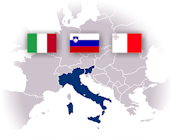Synonyms: ANG; ALS9; HEL168; RNASE4; RNASE5


Reactivity
Anti-Human
Applications
WB, IHC (P)
Source / Host
Mouse
Clone
(#7M15)
IsoType
IgG1
Shipment
RT
Long Term Storage
Lyophilized samples are stable for 2 years from date of receipt when stored at -70°C. Reconstituted antibody can be aliquoted and stored frozen at < -20°C for at least six months without detectable loss of activity.
Description
Angiogenin was initially purified from serum-free media conditioned by growth of a human adenocarcinoma cell line HT29 based on its ability to initiate vascularization in the chicken embryo chorioallantoic membrane. A number of other tumor, as well as normal, cell lines can also secrete Angiogenin. In addition, Angiogenin is present in normal human plasma at levels as high as 60-120 ng/mL. Unlike other angiogenic factors such as FGF, Angiogenin is neither mitogenic nor chemotactic for vascular endothelial cells in vitro. However, Angiogenin can stimulate capillary and umbilical vein endothelial cells to produce diacylglycerol and secrete prostacyclin by phospholipase activation. Angiogenin, absorbed on plastic, can also support endothelial and fibroblast cell adhesion and spreading. Surprisingly, Angiogenin has been found to be a member of the ribonuclease superfamily with approximately 35% sequence similarity at the amino acid level with pancreatic RNase. Angiogenin exhibits ribonucleolytic activity that is distinctly different than that of pancreatic RNase A. The ribonucleolytic activity of Angiogenin toward most RNase A substrates is much lower than that of RNase A. Nevertheless, the ribonucleolytic activity of Angiogenin is essential to its angiogenic activity since inhibition of the Angiogenin RNase activity will also abolish angiogenesis activity. Similar to several members of the RNase superfamily, Angiogenin is a cytotoxic agent that can abolish cellular protein synthesis. It has been demonstrated that Angiogenindependent protein synthesis inhibition can be attributed to the function of Angiogenin as a cytotoxic tRNAspecific RNAase. A cellsurface Angiogenin binding protein has been purified and characterized. Tryptic peptide mapping and sequence analysis indicate that this binding protein is a member of the actin family.
ESCLUSIVAMENTE PER USO DI RICERCA (RUO) e non per uso terapeutico o diagnostico su uomini o animali. Il prodotto NON è un Dispositivo Medico o un Diagnostico in Vitro.
PRODUCT FOR RESEARCH USE ONLY (RUO) and not for therapeutic or diagnostic use on humans or animals. The product is NOT a Medical Device or an In-Vitro Diagnostic (IVD).



